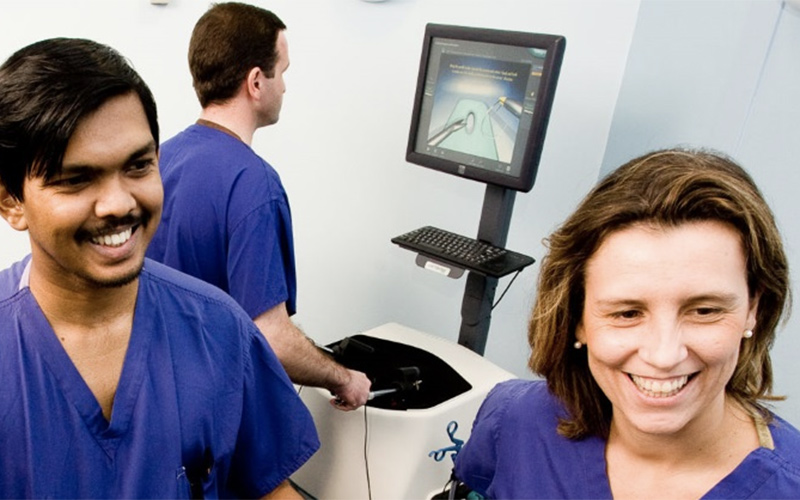Higher standards of medical training to ensure higher-quality patient care
Graduates of some medical schools perform less well than those from other schools, and medics from black and minority ethnic groups are at greater risk of poor performance in examinations.

20 August 2020
As a result of this work, far-reaching changes are being implemented to improve the validation of the process by which doctors gain a license to practise, and to improve the fairness of medical education and training for UK doctors and for doctors coming to the UK from abroad.
Research findings
This research looked across national datasets of doctors’ training records, exam results and GMC sanctions. It revealed for the first time that graduates of different UK medical schools differ significantly in the knowledge and skills they display in postgraduate Royal College examinations, and that the higher doctors’ knowledge and skills are, the lower the rates of GMC sanctions for poor professional practice.
It also demonstrated that the current system by which doctors from overseas obtain a UK licence to practise does not ensure equivalence between doctors graduating from different medical schools and countries. Overseas graduates had, on average, poorer knowledge and skills than graduates of UK medical schools, although the best are undoubtedly the equal of the best UK graduates.
The research was carried out by linking longitudinal data from various administrative datasets. Analyses illustrated the variation in knowledge among UK medical school graduates, the fact that a UK licence to practise does not ensure equivalence between doctors from different medical schools and countries, and the link between skills as measured by examinations and GMC rates of sanction.
In addition, poorer outcomes for UK black and minority ethnic students and doctors were shown in a meta-analysis of the examination outcomes of 23,742 medics. Two subsequent national qualitative studies showed the additional barriers that BME doctors face during training which can negatively affect their learning and achievement.
Recommendations and outcomes
This research underpins change that has improved the quality and fairness of UK medical education, benefiting patients and the profession. The results include:
- Introduction of the UK Medical Licensing Assessment, to ensure the equivalence of educational outcomes and set a common threshold for safe practice in 9,000 UK graduates and 14,000 international medical graduates annually from 2023.
- Policies requiring organisations to provide fair training for the 100,000 or more undergraduate and postgraduate medics in training at any one time.
- Equalities training for medical educators, training providers, and the medical regulator.
In 2014, this research on ethnic differences in performance was cited in a judicial review of a GMC-regulated examination. In 2015 the GMC established its Differential Attainment Project to understand causes and identify solutions. Its approach was underpinned by a literature review citing 10 of the team’s studies. In 2017 the GMC launched its Standards for Medical Education and Training, with accompanying equality and diversity guidance, to which UCL contributed.
The future
Covid-19 has produced an enormous, uncontrolled, unplanned, educational experiment whose effects will be studied for decades. The researchers are currently looking at the consequences for medical student selection at a time when A-levels are cancelled and replaced with calculated grades.
 Close
Close

